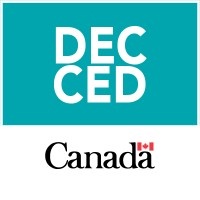
Tax credit for Gaspésie and selected maritime regions of Quebec
At a glance
- Maximum amount : 25,000 $
- Up to 30% of project cost
- Open Date : November 14, 2019
- Closing date : December 31, 2025
- Manufacturing
- Arts, entertainment and recreation
- Quebec
- For-profit business
- All revenue ranges
- 3 employees minimum
- Rural or Northern Residents
- Startups
Overview
Tax credit on total eligible payroll of 30% for marine biotechnology, mariculture and recreational and tourism activities and 15% for all other eligible activities.
Activities funded
This tax credit incentivizes corporations to engage in various production and commercial activities to boost economic growth in specific maritime regions of Québec. The eligible projects must focus on maritime resources, manufacturing, or tourism to qualify for the tax benefits.
- Marine biotechnology and mariculture.
- Manufacturing and processing of finished or semi-finished products from slate or peat.
- Production of wind power and manufacturing of wind turbines in La Matanie RCM.
- Processing of sea products, with additional location-specific requirements in La Matanie RCM.
- Recreational and tourism activities exclusively in Îles-de-la-Madeleine.
Eligibility
The eligibility criteria for this grant include specific conditions related to the corporation's location, activities, and certification requirements.
- The corporation must have a facility in an eligible region: Bas-Saint-Laurent, Côte-Nord, or Gaspésie–Îles-de-la-Madeleine.
- The activities must be eligible in the specific regions as follows:
- Manufacturing in Gaspésie–Îles-de-la-Madeleine only.
- Marine biotechnology and mariculture in all three regions.
- Manufacturing or processing of slate or peat products in all three regions.
- Production of wind power and manufacturing of wind turbines in Gaspésie–Îles-de-la-Madeleine and La Matanie RCM only.
- Processing of sea products in Gaspésie–Îles-de-la-Madeleine, Côte-Nord, and La Matanie RCM only.
- Recreational and tourism activities in Îles-de-la-Madeleine only.
- The corporation must obtain an initial qualification certificate from Investissement Québec.
- The corporation must demonstrate the potential to create at least three full-time positions in an eligible region within a reasonable time frame.
- The corporation must obtain a business qualification certificate and an employee certificate each year from Investissement Québec.
- The corporation should not be tax-exempt or a Crown corporation or its wholly-controlled subsidiary.
- The recognized corporation's operations in the eligible region must begin no later than December 31, 2025.
Who is eligible?
This grant is specifically targeted towards eligible corporations that are looking to create jobs in certain maritime regions of Québec, namely Bas-Saint-Laurent, Côte-Nord, and Gaspésie–Îles-de-la-Madeleine. The businesses that can apply are those engaged in specified sectors, including marine biotechnology, mariculture, manufacturing and processing of products from slate or peat, production of wind power, and manufacturing of wind turbines or processing of sea products in eligible areas. Corporations must operate within these specified regions and sectors to qualify. Moreover, these entities must be able to demonstrate job creation and operate facilities within these designated areas.
Who is not eligible
This grant excludes certain companies based on their tax exemption status or Crown association. The restrictions ensure alignment with regional job creation goals.
- Corporations with tax-exempt status for the taxation year.
- Crown corporations or their wholly controlled subsidiaries.
Eligible expenses
This grant focuses on stimulating job creation through various eligible activities in the maritime regions of Québec. It encompasses several industry sectors that are vital to regional economic growth and sustainability.
- Marine biotechnology and mariculture activities.
- Manufacturing or processing of finished or semi-finished products from slate or peat.
- Production of wind power and manufacturing of wind turbines. (Note: Limited to La Matanie RCM)
- Processing of sea products.
- Recreational and tourism activities specifically in Îles-de-la-Madeleine.
Eligible geographic areas
This grant is aimed at encouraging economic activities in specific maritime regions of Québec to stimulate job creation and regional development. Eligible areas are determined by their economic potential and strategic location within maritime regions.
- Administrative region of Gaspésie–Îles-de-la-Madeleine.
- Côte-Nord region.
- Bas-Saint-Laurent region.
- La Matanie regional county municipality for specific activities.
- Îles-de-la-Madeleine for recreational and tourism activities.
Selection criteria
Yes, there are evaluation and selection criteria for this grant. The corporation must demonstrate its capacity to create at least three full-time positions in an eligible region and obtain necessary qualification certificates from Investissement Québec.
- The corporation must obtain an initial qualification certificate issued by Investissement Québec.
- The corporation must create at least three full-time positions in a reasonably short period of time.
- The corporation must operate in an eligible region and conduct eligible activities as specified for each region.
- Each year, the corporation must obtain a business qualification certificate for its activities from Investissement Québec.
- The corporation must obtain an employee certificate for its eligible employees each year.
How to apply
Preparation of the request
- Gather information on the eligible activities of your business.
- Ensure that your business meets the specific eligibility criteria for the relevant region.
Obtaining the initial certificate
- Fill out the initial certificate application form with Investissement Québec.
- Prepare the required documentation, such as proof of the ability to create jobs.
- Submit the application along with the payment of the required fees for the initial certification.
Obtaining the certificate of recognized business
- Complete the application form for the recognized business certificate for the current year's activities.
- Ensure the submission of applications for certificates for eligible employees.
- Send the completed forms and any additional documentation to Investissement Québec.
Annual submission of the credit application
- Complete the forms required by Revenu Québec at the end of the tax year.
- Attach the certificates and attestations obtained to your business's income tax return.
- Submit the complete application to Revenu Québec for processing the credit.
Contact and clarification
Additional information
Here are additional relevant details for this grant:
- The tax credit is refundable, meaning the eligible corporation will receive the credit amount minus any taxes owed.
- The eligible salary cap is $83,333 per year for each eligible employee.
- Investissement Québec charges fees for issuing qualification and eligibility certificates, and for processing eligibility certificate applications.
- Investissement Québec can revoke a certificate if a major unforeseen event occurs, which affects the company's eligibility.
- There are specific penalties for providing false or inaccurate information, or for obstructing an Investissement Québec representative.
- Eligible companies may receive financing for refundable tax credits to access funds more quickly.
- Investissement Québec retains the right to visit eligible companies during the eligibility period to ensure compliance.
- Only complete applications for certificates and attestations are processed and must be submitted within specific deadlines to guarantee timely issuance.
Contacts
Frequently Asked Questions about the Tax credit for Gaspésie and selected maritime regions of Quebec Program
What is the Tax credit for Gaspésie and selected maritime regions of Quebec?
How much funding can be received?
What is the deadline to apply?
Who is eligible for the Tax credit for Gaspésie and selected maritime regions of Quebec program?
What expenses are eligible under Tax credit for Gaspésie and selected maritime regions of Quebec?
Who can I contact for more information about the Tax credit for Gaspésie and selected maritime regions of Quebec?
Where is the Tax credit for Gaspésie and selected maritime regions of Quebec available?
More programs like this

Program Supporting the Development of Tourist Attractions — Stream 1

Le Fonds d’initiatives locales (FIL) Village

Laurentides Tourism — Regional Partnership and Digital Transformation Agreement in Tourism (EPRTNT) – Digital development of a company

Regions and Rurality Fund (RRF) - Component 1 - Support for regional outreach

QEPD — Diversify your economy - CED (QC)

Regional partnership and digital transformation agreement in tourism

Tourisme Côte-Nord — EPRTNT – Studies and consulting services

Laurentides Tourism — Regional Partnership and Digital Transformation Agreement in Tourism (EPRTNT) – Studies and consulting services

Tourism Innovation Program — Stream 2 - Support for projects and the development of innovative businesses
